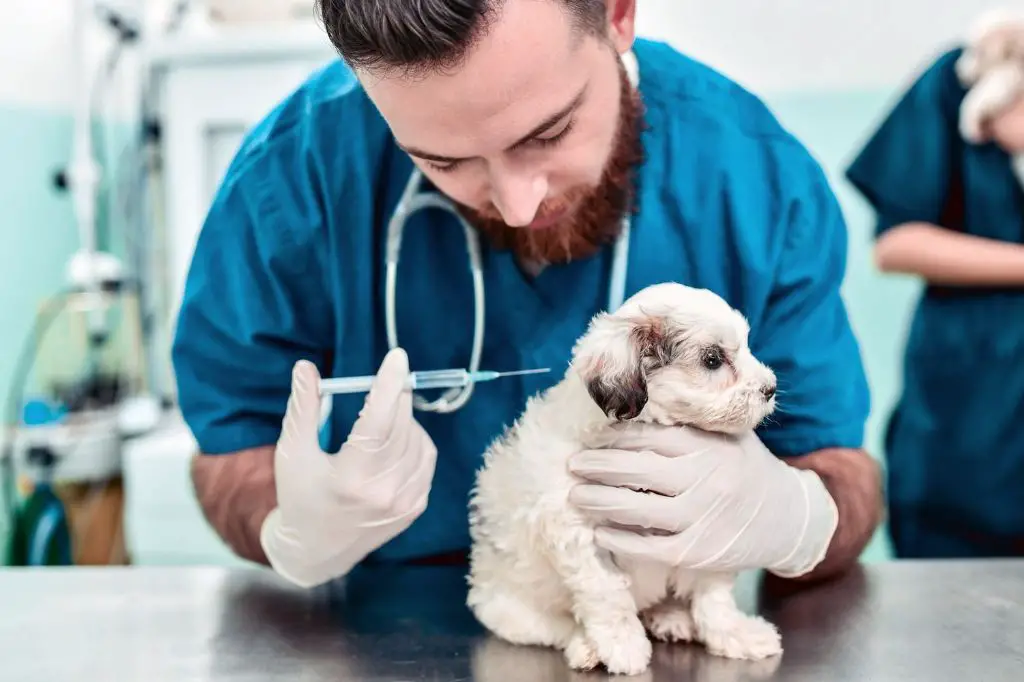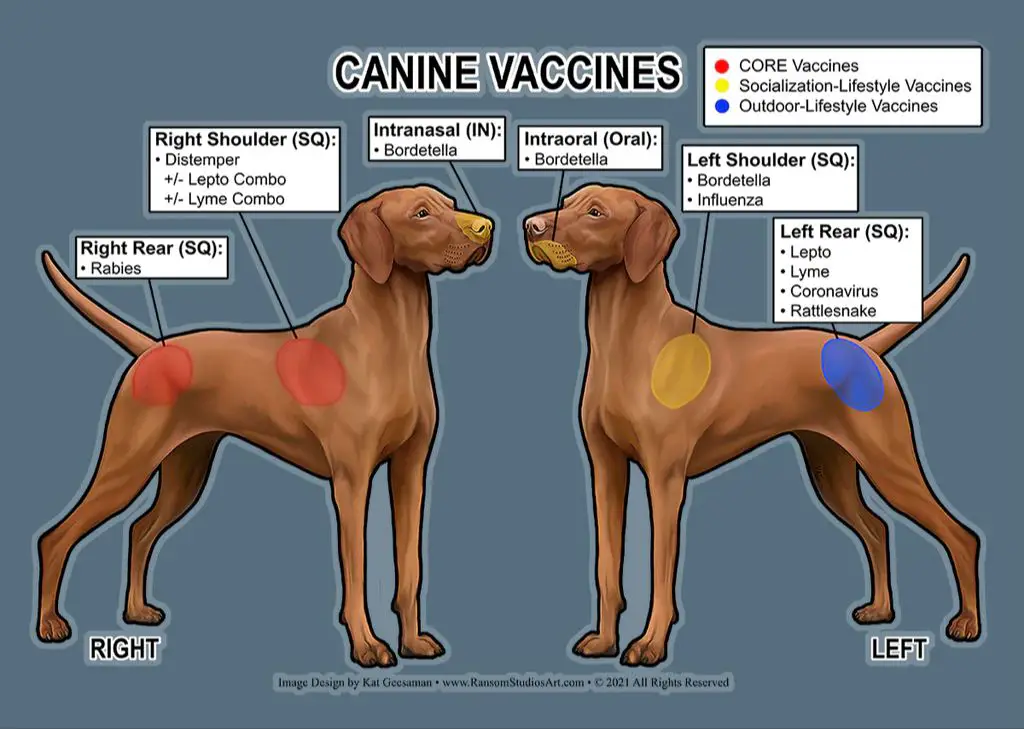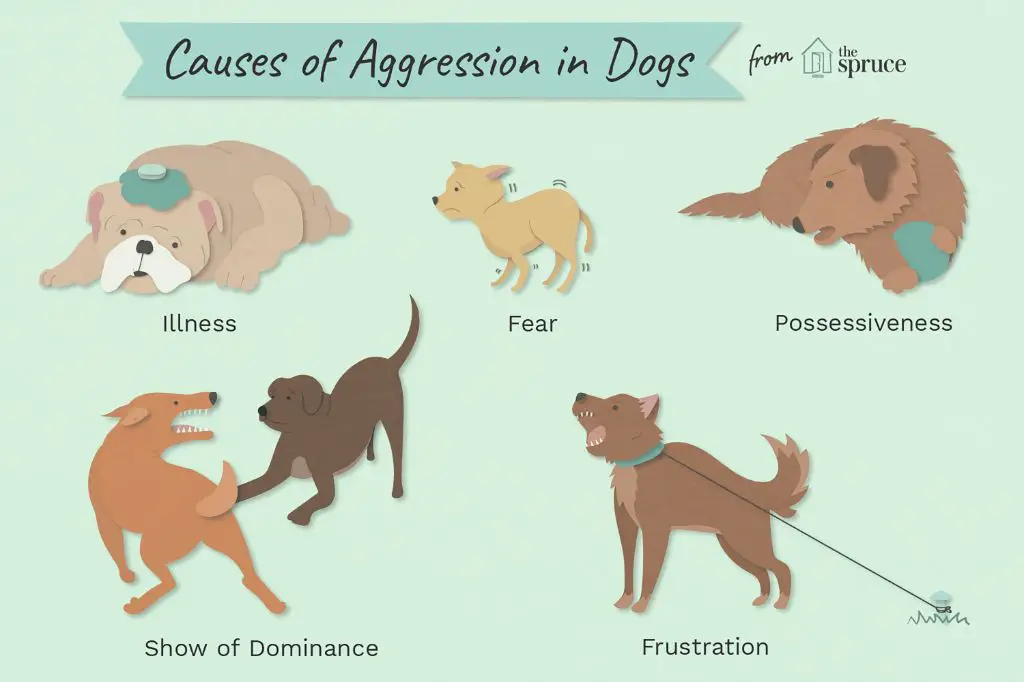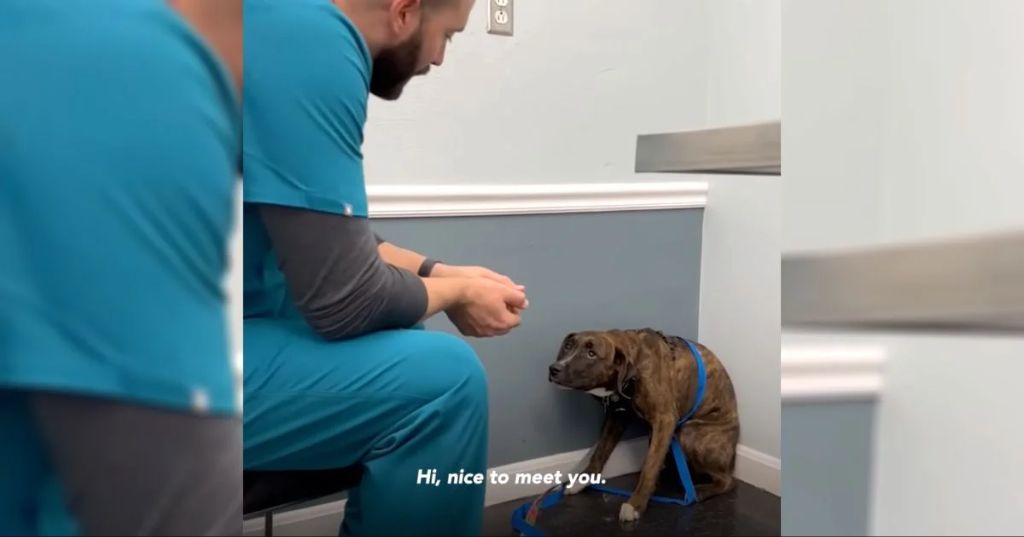Introduction
There is a common question of whether vaccines can lead to behavior changes in dogs. Some dog owners report personality shifts, aggression, or lethargy after their dogs receive certain vaccines. However, the science shows there is no evidence confirming vaccines directly cause significant behavior changes.
While some dogs may display temporary lethargy or discomfort after vaccinations, this is usually due to the immune response or stress of the vet visit. Any notable behavior shifts likely stem from other factors. This article provides an overview of common canine vaccines, how they work, potential side effects, examines rumors of behavior changes, and explains the most likely causes if your dog seems different after shots.
Common Canine Vaccines
There are some vaccines that are considered “core” for dogs and are recommended for all canines by veterinarians. According to the American Animal Hospital Association (AAHA) Canine Vaccination Guidelines, the main core vaccines for dogs are:
- Rabies – protects against the rabies virus (https://www.aaha.org/aaha-guidelines/2022-aaha-canine-vaccination-guidelines/recommendations-for-core-and-noncore-canine-vaccines/). This vaccine is required by law in most areas.
- Distemper – protects against canine distemper virus, which can cause severe illness (https://be.chewy.com/dog-vaccinations-a-complete-guide/).
- Adenovirus – protects against canine adenovirus type 1 and 2, which can cause liver disease (https://www.thesprucepets.com/vaccines-for-dogs-3384664).
- Parvovirus – protects against the parvovirus that attacks the gastrointestinal system (https://www.thesprucepets.com/vaccines-for-dogs-3384664).

These core vaccines are recommended for all dogs by vets and are considered essential. There are also non-core vaccines that may be recommended in certain situations, like based on location, health status, and lifestyle.
How Vaccines Work
Vaccines contain weakened or killed viruses, bacteria, or other disease-causing organisms that trigger an immune response in pets without causing illness. When a vaccine is administered, the immune system recognizes the weakened pathogen as a foreign invader and produces antibodies to destroy it. The antibodies remain in the body so that if the real disease-causing agent is encountered, the immune system can rapidly respond and prevent infection. Essentially, vaccines teach the immune system to recognize and quickly mount a defense against specific diseases.
According to the American Veterinary Medical Association, vaccines stimulate the immune system to produce activated T-lymphocytes and B-lymphocytes, types of white blood cells that detect antigens associated with bacteria and viruses. The activated lymphocytes remain sensitized and responsive to future exposure to that specific antigen. If the vaccinated pet is exposed to that disease in the future, memory cells will mount an amplified and rapid immune response, producing antibodies to that antigen. This results in immunity against the disease [1].
Potential Vaccine Side Effects

While vaccines are generally safe for dogs, some mild side effects can occur after vaccination. According to the American Veterinary Medical Association (AVMA) [1], the most common vaccine reactions include:
- Pain, tenderness or swelling at the injection site
- Mild fever
- Decreased activity or lethargy
These effects are usually mild and temporary, lasting only a day or two. According to PetMD [2], more severe reactions like vomiting, diarrhea, difficulty breathing, and hives are possible but quite rare.
While concerning for pet owners, lethargy, pain, and low-grade fevers after vaccination indicate that the immune system is responding and antibodies are being produced. Unless symptoms are severe or long-lasting, they are not a cause for alarm and tend to resolve on their own. Monitoring your dog and contacting your veterinarian if you have concerns can help provide peace of mind.
Rumors of Behavior Changes

There are some rumors that vaccines can cause behavioral changes in dogs, such as increased aggression, anxiety, and seizures. However, there is no scientific evidence to support these claims.
Some critics point to a supposed condition called “rabies miasm” – the idea that the rabies vaccine causes unwarranted aggression and other neurological symptoms in dogs. However, multiple credible sources have debunked this claim, stating there is no proof rabies or other vaccines cause these behavioral changes.[1]
While vaccines can sometimes cause side effects like lethargy or soreness at the injection site, studies have not found a link between vaccines and aggression, anxiety, seizures, or other significant behavior changes in dogs.[2] There is no scientific evidence establishing vaccines as the cause of these rumored effects.
Rather, any perceived behavior changes likely have other causes, such as natural changes as dogs age, physical illness, stress, improper socialization, or inadequate training. With proper care and attention, most behavioral issues can be managed without needing to blame routine vaccinations.
Lack of Scientific Evidence
Despite anecdotal reports from pet owners, there is no scientific evidence confirming a link between routine vaccinations like rabies or DHPP and significant, long-term behavior changes in dogs. No major studies have been conducted that demonstrate vaccines directly causing aggressive behavior, anxiety, or other concerning personality shifts.
In a comprehensive review published in the journal Vaccine, researchers analyzed adverse effects of vaccines in dogs, cats, cattle and horses. While minor reactions were noted, “there were no suggestions that vaccines could induce behavioral changes” (Tizard, 2021).
Furthermore, organizations like the American Veterinary Medical Association (AVMA) affirm that approved vaccines undergo rigorous safety testing and continue to be monitored. Serious behavior issues are not acknowledged as known side effects.
While every dog may respond to vaccines differently, most behavioral shifts after vaccination appear to be short-term results of feeling under the weather. Extended lethargy, pain, or appetite changes could temporarily impact a dog’s activity levels or mood.
Potential Causes of Changes
There are several potential reasons for behavioral changes in dogs that do not relate to vaccines. Some of the most common causes include:
Age
As dogs age, their behavior often changes gradually. For example, dogs may become less energetic, more anxious, or develop cognitive issues as senior dogs (Source). These types of slow, age-related changes are normal.
Medical Issues
Sometimes a sudden change in a dog’s behavior can indicate an underlying medical issue such as arthritis, dental problems, urinary tract infections, or neurological conditions. If the behavior change corresponds with apparent pain or discomfort, it’s important to take the dog to a veterinarian for an exam (Source).
Environment
Dogs are sensitive to changes in their environment. Things like moving homes, introducing new pets or people, or even changes in the owner’s work schedule can stress some dogs and cause mild behavior changes like increased vocalization or anxiety (Source). Usually these resolve on their own once the dog adjusts.
Mitigating Fear of Vaccines
It’s understandable that some dogs may be fearful or anxious about vet visits and vaccines. According to veterinarians, there are ways to help mitigate this fear through gradual exposure and positive reinforcement1.

Start by bringing your dog to the vet clinic and having them interact with staff and get treats, without actually getting a shot. This helps them associate the location with positive experiences. You can also work on handling exercises at home, mimicking veterinary exams by touching their legs, ears and mouths2. Reward them with praise and high-value treats.
When it is time for vaccines, ask your vet for recommendations to make the process smoother. They may suggest giving oral sedatives beforehand to reduce anxiety. During the appointment, use distraction, treats and affection. Afterwards, continue praising and comforting your dog3.
While the first vaccination may be difficult, consistent positive conditioning can help make subsequent vet visits less stressful. However, if your dog shows extreme fear, consulting a veterinary behaviorist may be warranted.
- https://veterinariansangertx.com/blog/how-to-make-your-pet-less-fearful-of-shots
- https://pethelpful.com/dogs/How-to-Make-Your-Dog-Less-Fearful-of-Shots
- https://www.bayvets.co.uk/how-to-make-your-anxious-dog-less-fearful-of-puppy-vaccinations/
Ensuring Dog Comfort
When taking your dog to get vaccinated, consult your veterinarian on the best practices for ensuring your dog remains as comfortable as possible throughout the process. Proper administration of vaccines can help minimize fear and discomfort.
Some tips for making your dog more comfortable include:1
- Speak softly and calmly to your dog beforehand
- Give treats and affection during and after
- Allow the vet access to your dog’s leg by gently holding it still
- Distract with a favorite toy or activity
- Schedule appointments at quieter times of day
Veterinarians are trained on the proper way to inject vaccines to minimize pain. Still, certain techniques like choosing the right needle size, injection angle, and injection speed can make a difference. Your vet may also recommend applying a numbing cream beforehand for anxious dogs.
Ensuring your dog is as comfortable as possible will lead to less stress and fear, making vaccinations easier on you both.
Conclusion
In conclusion, there is currently no scientific evidence that proves routine canine vaccinations lead to significant behavior changes in dogs. While some pet owners may anecdotally report perceiving differences after vaccination, controlled studies have not found a causal link. This does not mean we should ignore the remote possibility of behavior effects in sensitive animals, but it also does not justify forgoing critical preventative healthcare for our pets. As caring owners, we must weigh the established benefits of vaccination against unproven risks. With supportive care before and after vaccination, we can help our dogs stay healthy, while remaining vigilant for any concerning reactions.